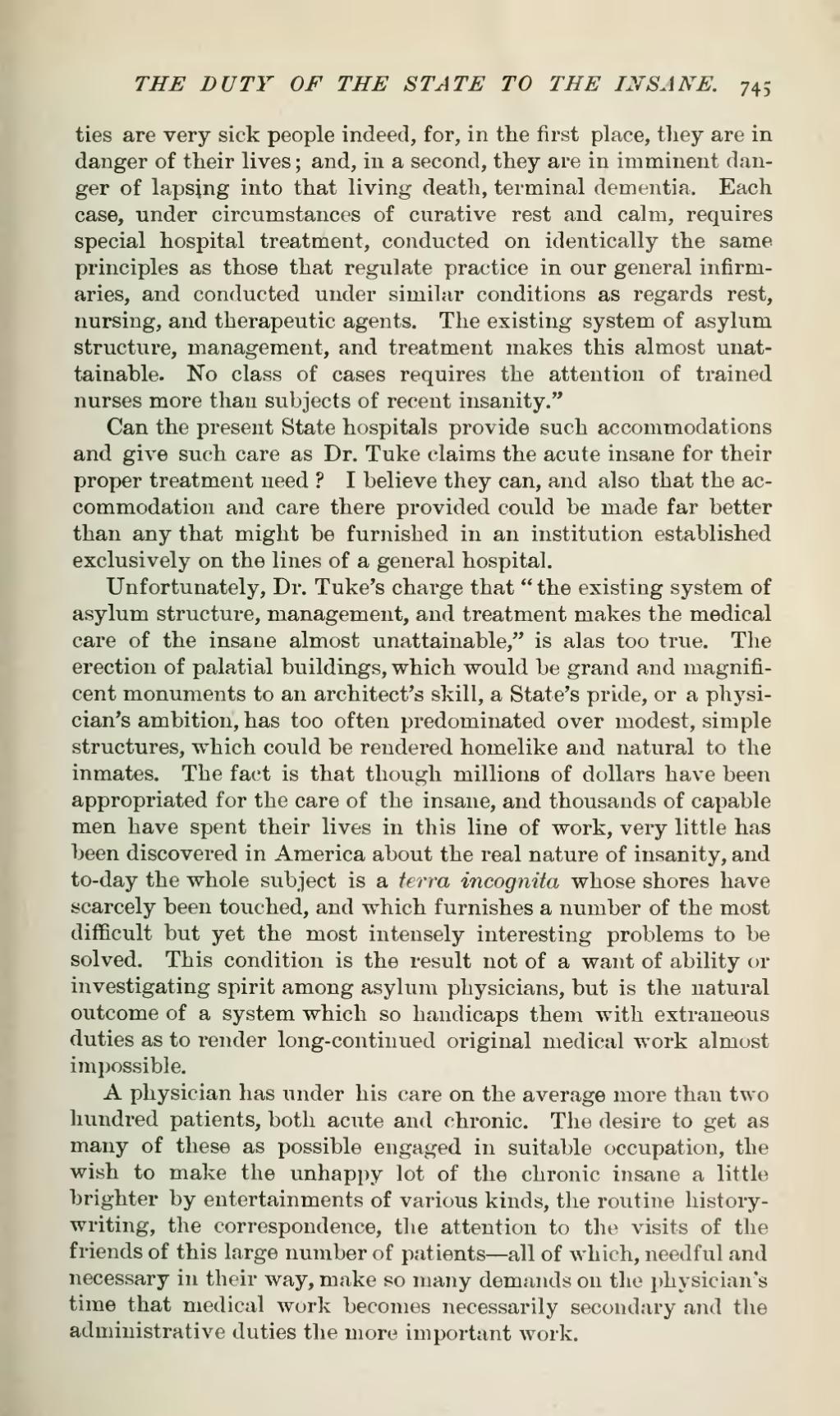ties are very sick people indeed, for, in the first place, they are in danger of their lives; and, in a second, they are in imminent danger of lapsing into that living death, terminal dementia. Each case, under circumstances of curative rest and calm, requires special hospital treatment, conducted on identically the same principles as those that regulate practice in our general infirmaries, and conducted under similar conditions as regards rest, nursing, and therapeutic agents. The existing system of asylum structure, management, and treatment makes this almost unattainable. No class of cases requires the attention of trained nurses more than subjects of recent insanity."
Can the present State hospitals provide such accommodations and give such care as Dr. Tuke claims the acute insane for their proper treatment need? I believe they can, and also that the accommodation and care there provided could be made far better than any that might be furnished in an institution established exclusively on the lines of a general hospital.
Unfortunately, Dr. Tuke's charge that "the existing system of asylum structure, management, and treatment makes the medical care of the insane almost unattainable," is alas too true. The erection of palatial buildings, which would be grand and magnificent monuments to an architect's skill, a State's pride, or a physician's ambition, has too often predominated over modest, simple structures, which could be rendered homelike and natural to the inmates. The fact is that though millions of dollars have been appropriated for the care of the insane, and thousands of capable men have spent their lives in this line of work, very little has been discovered in America about the real nature of insanity, and to-day the whole subject is a terra incognita whose shores have scarcely been touched, and which furnishes a number of the most difficult but yet the most intensely interesting problems to be solved. This condition is the result not of a want of ability or investigating spirit among asylum physicians, but is the natural outcome of a system which so handicaps them with extraneous duties as to render long-continued original medical work almost impossible.
A physician has under his care on the average more than two hundred patients, both acute and chronic. The desire to get as many of these as possible engaged in suitable occupation, the wish to make the unhappy lot of the chronic insane a little brighter by entertainments of various kinds, the routine historywriting, the correspondence, the attention to the visits of the friends of this large number of patients—all of which, needful and necessary in their way, make so many demands on the physician's time that medical work becomes necessarily secondary and the administrative duties the more important work.
